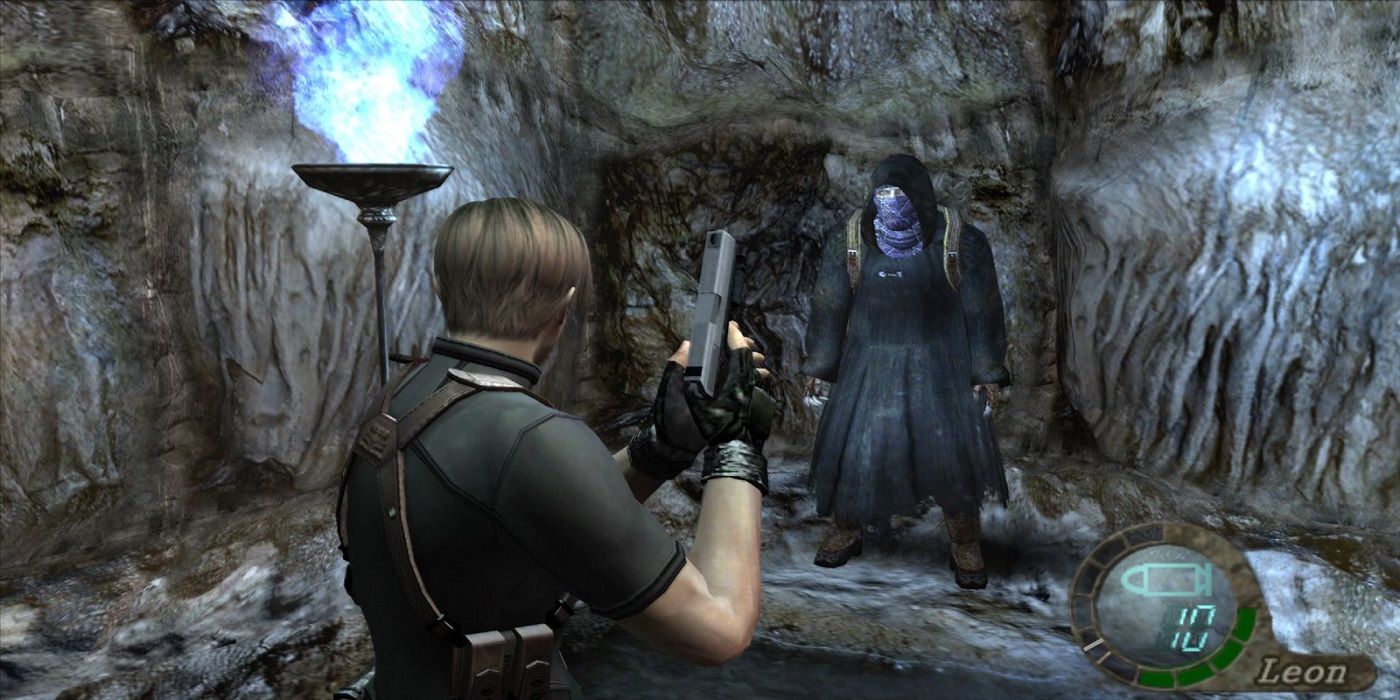

Leon’s own trusty knife will need to be repaired at a merchant’s shop, but kitchen knives can be found and stored for later use. That being said, knives now act as temporary items which take damage over time and need to be found out in the environment. As quick-time events have also been scrapped, encounters with the knife feel incredibly tense in their own right (Major Krauser we’re looking at you), sparking a frantic battle between desperation and preservation. By tapping the left shoulder button at the last second, Leon can now counter enemy attacks, with a perfect parry leaving them open to a spinning kick to the face. The knife has also been radically redefined to be used as a valuable tool of defence in multiple situations, as opposed to a last resort. Yes, I totally understand that this is normal by today’s standards, but back in 2005, it was quite literally picking between one or the other. The over-the-shoulder camera returns, but Leon can now aim and move at the same time.

When compared to the original, general gameplay feels incredibly smooth and responsive. The tension here comes from the uphill battle that the masses of villagers present, more so than traditional jump scares and constant low ammunition levels. Resident Evil 4’s gameplay has always steered towards explosive action more so than traditional survival horror, but it’s also why I enjoyed it more than most entries. Much like the Resident Evil 2 and Resident Evil 3 remakes, Resident Evil 4 isn’t necessarily set in telling a new or remained story, but manages to throw a few unique twists that I would rather not spoil, which I feel fans of the original will appreciate. Leon can now tell Ashley to either hang tight or stay close, only having to revive her when downed in combat.

For the most part, this first act plays out how you would expect, but thanks to Ashley’s newer AI and command system, the story presses forward at a smoother rate, bogged down less by frustration caused by Ashley’s strange incompetence in the original. The mystery that soon transcends the initial rescue is an interesting one, to say the least, making for one of the more direct and engrossing narratives in the franchise. But as you would expect, things never seem as simple as they are made out to be. Leon is tasked with rescuing the President’s daughter Ashley Graham. The 15-hour runtime can feel a little snappy, but in no way disappointingly short, as whatever pacing issues had remained have indeed been addressed. The third act has also been tightened considerably, making for a more consistent sense of pace where no moment ever feels wasted or stagnant. A Stroll Through Townįor those of you that have never played 2005’s original, things remain mostly intact, albeit for a few cinematic deviations which generally come down to the lack of quick-time events.

It manages to revamp all that feels necessary, from gorgeous visuals to solid performance, standing as an absolute must-play for both new and old fans alike, even if it clings tightly to its narrative and action-based roots. So what can be done with a remake of Resident Evil 4, particularly to top what is already heralded as one of the best survival horror games of all time? The answer certainly lies somewhere within this remake. But unlike older games that experienced newer visuals and revamped gameplay, Resident Evil 4’s more recent tropes and mechanics bring it closer to what many expect from both the broader franchise and aforementioned remakes. If previous remakes of Resident Evil games taught us anything, it’s that you can in fact teach an old dog new tricks.


 0 kommentar(er)
0 kommentar(er)
